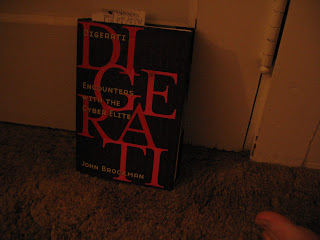Book: The Ascent of Wonder: The Evolution of Hard SF
Authors: Lots (edited by David G. Hartwell and Kathryn
Cramer)
Published: 1994 (collection; Tor)
Pages: 988
Holy shit was this book ever difficult to get through, guys.
Let me clarify right now that I don’t mean because of the
quality; it was purely a size thing. Almost 1000 pages crammed with tiny type
about physics and biogenetics and astronomy and advanced mathematics and,
weirdly enough, more than one whirlpool. Plus dragons.
I’ve been chipping away at this collection since the
beginning of July, and it really helped to take two,
several-smaller-books-sized breaks. Even then, finishing it still gives my
brain that way-too-full sensation of going to a museum and reading every single
plaque next to every single exhibit. Ow.
And that is what this gi-fucking-normous book functions best
as: a very complete history of sci fi. (Well, up to a point. The youngest story
in here is older than I am.) I read it because I want to learn more about the
genre, and it gave a really thorough tour through a lot of different trope
origins, teaching by showing off examples. Which was the best way to learn,
because here you get all the lasers and moon colonies where people have already
gotten cynical about the wonders of space and deep-sea aliens and sentient
monkeys who escape wearing orange Bermuda shorts and carrying their typewriters
and children’s games that lead into another dimension and Asimov computers
compiling information about life’s biggest question until the end of time.
It’s all blended together, in case you can’t tell. I think
partly because I read all the intros to the stories, too, which each boiled
down to “This guy is awesome and [chose one] severely under-appreciated” OR “recognized
as one of the leading writers of the genre and a bunch of people still copy
him.”
(Regarding that last adjective, there are a relatively
decent number of female authors represented here, which is to say two more
beyond Anne McCaffery [dragons!] and Ursula K. Le Guin. The collection was also
co-edited and compiled by a lady.)
I thought the one they chose for Poe was weaksauce because
it’s a sailor describing how he got out of a whirlpool, which, while still
affecting, was the most conventional Poe story I’ve ever read. Also, maybe I’m
just not appreciating historical nuance, but H.G. Wells’s “Hey, Tanks!” (actual
title: “The Land Ironclads”) was also not nearly as good a representation of
that author as they could’ve picked. And I can’t really get over McCaffery’s
dragons getting put into a collection dedicated to hard sci fi when the
definition of the subgenre specifically eliminates magic as a reason for
anything.
But once I got into the rhythm and let my eyes skim the
passages with incomprehensible engineering equations in them, I had a great
time. I’m struggling with the decision about what to do with this physical book
now, though. To the pros and cons list!
It throws my spine
out of whack whenever I try to lug it around in my shoulder bag, and I
automatically deduct major points from any reading material I can’t carry with
me at all times.
As a city girl whose pedestrian ways has grown a healthy
wariness of potential muggers, I appreciate having a blunt object that will
stun but not kill and look completely innocent while doing so.
I can’t see myself ever plowing through the whole thing
again, like, ever.
But it’d be great to have to spot-check and keep as a future
readings list for authors I would never come across again.
Oh, hell, I’ll just keep the damn thing so I’ll have an excuse to either weed my crowded fiction bookshelf or build another one that looks like the TARDIS.

